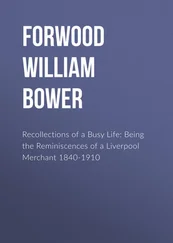William Dunlop - Recollections of the War of 1812
Здесь есть возможность читать онлайн «William Dunlop - Recollections of the War of 1812» — ознакомительный отрывок электронной книги совершенно бесплатно, а после прочтения отрывка купить полную версию. В некоторых случаях можно слушать аудио, скачать через торрент в формате fb2 и присутствует краткое содержание. Жанр: foreign_antique, foreign_prose, на английском языке. Описание произведения, (предисловие) а так же отзывы посетителей доступны на портале библиотеки ЛибКат.
- Название:Recollections of the War of 1812
- Автор:
- Жанр:
- Год:неизвестен
- ISBN:нет данных
- Рейтинг книги:4 / 5. Голосов: 1
-
Избранное:Добавить в избранное
- Отзывы:
-
Ваша оценка:
- 80
- 1
- 2
- 3
- 4
- 5
Recollections of the War of 1812: краткое содержание, описание и аннотация
Предлагаем к чтению аннотацию, описание, краткое содержание или предисловие (зависит от того, что написал сам автор книги «Recollections of the War of 1812»). Если вы не нашли необходимую информацию о книге — напишите в комментариях, мы постараемся отыскать её.
Recollections of the War of 1812 — читать онлайн ознакомительный отрывок
Ниже представлен текст книги, разбитый по страницам. Система сохранения места последней прочитанной страницы, позволяет с удобством читать онлайн бесплатно книгу «Recollections of the War of 1812», без необходимости каждый раз заново искать на чём Вы остановились. Поставьте закладку, и сможете в любой момент перейти на страницу, на которой закончили чтение.
Интервал:
Закладка:
The fact is, all the worse characters in the army were congregated at the Isle of Wight; men who were afraid to join their regiments from the indifferent estimation they were held in by their brother officers. These stuck to the depôt, and the arrival of a fleet of transports at Spithead or the Mother-bank, was a signal for a general sickness among these worthies. And this was peculiarly the case with those who were bound for Canada, for they knew full well if they could shirk past the month of August, there was no chance of a call on their services until the month of April following. And many scamps took advantage of this. I know one fellow who managed to avoid joining his regiment abroad for no less than three years.
I took my departure from this military paradise for the first time, for this country, in the beginning of August, 1813, in a small, ill-found, undermanned, over-crowded transport, as transports in those days were very apt to be; and after a long, weary, and tempestuous voyage of three months, was landed at Quebec in the beginning of the following November. Next to the tedium of a sea voyage, nothing on earth can be so tiresome as a description of it; the very incidents which a Journal of such a pilgrimage commemorates shew the dreadful state of vacuum and ennui which must have existed in the mind of the patient before such trifles could become of interest sufficient to be thought worthy of notation. A sail in sight, – a bunch of sea-weed floating past the ship, – a log of wood covered with barnacles, – or, better still, one of the numerous tribe of Medusa, with its snake-like feelers and changeable colours – a gull, or a flock of Mother Carey's chickens, paddling in the wake, – are occurrences of sufficient importance to call upon deck all the passengers, even during dinner. Or if they are happy enough to fall in with a shoal of porpoises or dolphins, a flock of flying fish, or a whale blowing and spouting near the ship, such a wonder is quite sufficient to furnish conversation for the happy beholders for the rest of the voyage. For my own part, being familiar with, and also seasoned to, all the wonders of the deep, I make a vow whenever I go on board, that nothing inferior in rank and dignity to a sea-serpent shall ever induce me to mount the companion ladder. On the whole, though it cannot be considered as a very choice bit of reading, I look upon the log-book as by far the best account of a voyage, for it accurately states all that is worthy of note in the fewest possible words. It is the very model of the terse didactic. Who can fail to admire the Caesar-like brevity in an American captain's log: "At noon, light breezes and cloudy weather, wind W.S.W., fell in with a phenomenon – caught a bucket full of it." Under all these circumstances, I think it is highly probable that my readers will readily pardon me for not giving my experience on this subject. I met with no seas "mountains high," as many who have gone down unto the sea in ships have done. Indeed, though I have encountered gales of wind in all the favorite playgrounds of Oeolus – the Bay of Biscay – off the Cape of Good Hope – in the Bay of Bengal – the coast of America, and the Gulph of St. Lawrence, yet I never saw a wave high enough to becalm the main-top sail. So that I must suppose that the original inventor of the phrase was a Cockney, who must have had Garlic hill or Snow hill, or some of the other mountainous regions of the metropolis in his mind's eye when he coined it.
Arrived at Quebec, we reported ourselves, as in duty bound, to the General Commanding, and by his orders we left a subaltern to command the recruits (most of whom, by the way, were mere boys,) and to strengthen the Garrison of Quebec, and the venerable old colonel and myself made all haste to join our regiment up the country. As my worthy old commander was a character, some account of him may not be uninteresting.
Donald McB – was born in the celebrated winter of 1745-46, while his father, an Invernesshire gentleman, was out with Prince Charles Edward, who, on the unfortunate issue of that campaign for the Jacobite interest, was fain to flee to France, where he joined his royal master, and where, by the Prince's influence, he received a commission in the Scotch Regiment of Guards, and in due time retired with a small pension from the French King, to the town of Dunkirk, where with his family, he remained the rest of his days.
Donald, meanwhile, was left with his kindred in the Highlands, where he grew in all the stinted quantity of grace that is to be found in that barren region, until his seventh year, when he was sent to join his family in Dunkirk. Here he was educated, and as his father's military experience had given him no great love for the profession of arms, he was in due time bound apprentice to his brother-in-law, an eminent surgeon of that town, and might have become a curer instead of inflicter of broken heads, or at least murdered men more scientifically than with the broadsword; but fate ordered it otherwise.
Donald had an objection as strong to the lancet as his father could possibly have to the sword. Had the matter been coolly canvassed, it is hard to say which mode of murder would have obtained the preference, but, always hasty, he did not go philosophically to work, and an accident decided his fate as it has done that of many greater men.
A young nun of great beauty, who had lately taken the veil, had the misfortune to break her leg, and Donald's master, being medical man to the convent, he very reasonably hoped that he would assist in the setting of it – attending upon handsome young nuns might reconcile a man even to being a surgeon of – ; but his brother-in-law and the abbess both entered their veto. Piqued at this disappointment, next morning saw him on the tramp, and the next intelligence that was heard of him was that he was serving His Most Christian Majesty in the capacity of a Gentleman Sentinel, (as the Baron of Bradwardine hath it,) in a marching regiment.
This settled the point. His father, seeing that his aversion to the healing art was insuperable, procured a commission in the Regiment de Dillon or Irish Brigade of the French Service.
In this he served for several years, until he had got pretty well up among the lieutenants, and in due time might have figured among the marshals of Napoleon; but the American Revolution breaking out, and it being pretty apparent that France and Great Britain must come into hostile collision, his father, though utterly abhorring the reigning dynasty, could not bear the idea of a son of his fighting against his country and clan, persuaded him to resign his commission in the French Service, and sent him to Scotland with letters of recommendation to some of his kindred and friends, officers in the newly raised Frazer Highlanders (since the 71st,) whom he joined in Greenock in the year 1776, and soon after embarked with them for America in the capacity of a gentleman volunteer, thus beginning the world once more at the age of thirty.
After serving in this regiment till he obtained his ensigncy, he was promoted to be lieutenant and adjutant in the Cavalry of Tarlton's Legion, in which he served and was several times wounded, till the end of the war, when he was disbanded with the rest of his regiment, and placed on half pay. He exchanged into a regiment about to embark for the West Indies, where in seven or eight years, the yellow fever standing his friend by cutting off many of his brother officers, while it passed over him, he in progress of seniority, tontined it up to nearly the head of the lieutenants; the regiment was ordered home in 1790, and after a short time, instead of his company, he received his half-pay as a disbanded lieutenant.
He now, from motives of economy as well as to be near his surviving relatives, retired to Dunkirk; but the approaching revolution soon called him out again, and his promotion, which, though like that of Dugald Dalgetty, it was "dooms slow at first," did come at last. Now after thirty-seven years' hard service in the British Army, (to say nothing of fourteen in the French) in North America, the West Indies, South America, the Cape of Good Hope, Java and India, he found himself a Lieutenant-Colonel of a second battalion serving in Canada. Such is a brief memoir of my old commanding officer. He was a warm-hearted, hot-tempered, jovial, gentlemanly old veteran, who enjoyed the present and never repined at the past; so it may well be imagined that I was in high good luck with such a compagnon de voyage .
Читать дальшеИнтервал:
Закладка:
Похожие книги на «Recollections of the War of 1812»
Представляем Вашему вниманию похожие книги на «Recollections of the War of 1812» списком для выбора. Мы отобрали схожую по названию и смыслу литературу в надежде предоставить читателям больше вариантов отыскать новые, интересные, ещё непрочитанные произведения.
Обсуждение, отзывы о книге «Recollections of the War of 1812» и просто собственные мнения читателей. Оставьте ваши комментарии, напишите, что Вы думаете о произведении, его смысле или главных героях. Укажите что конкретно понравилось, а что нет, и почему Вы так считаете.












